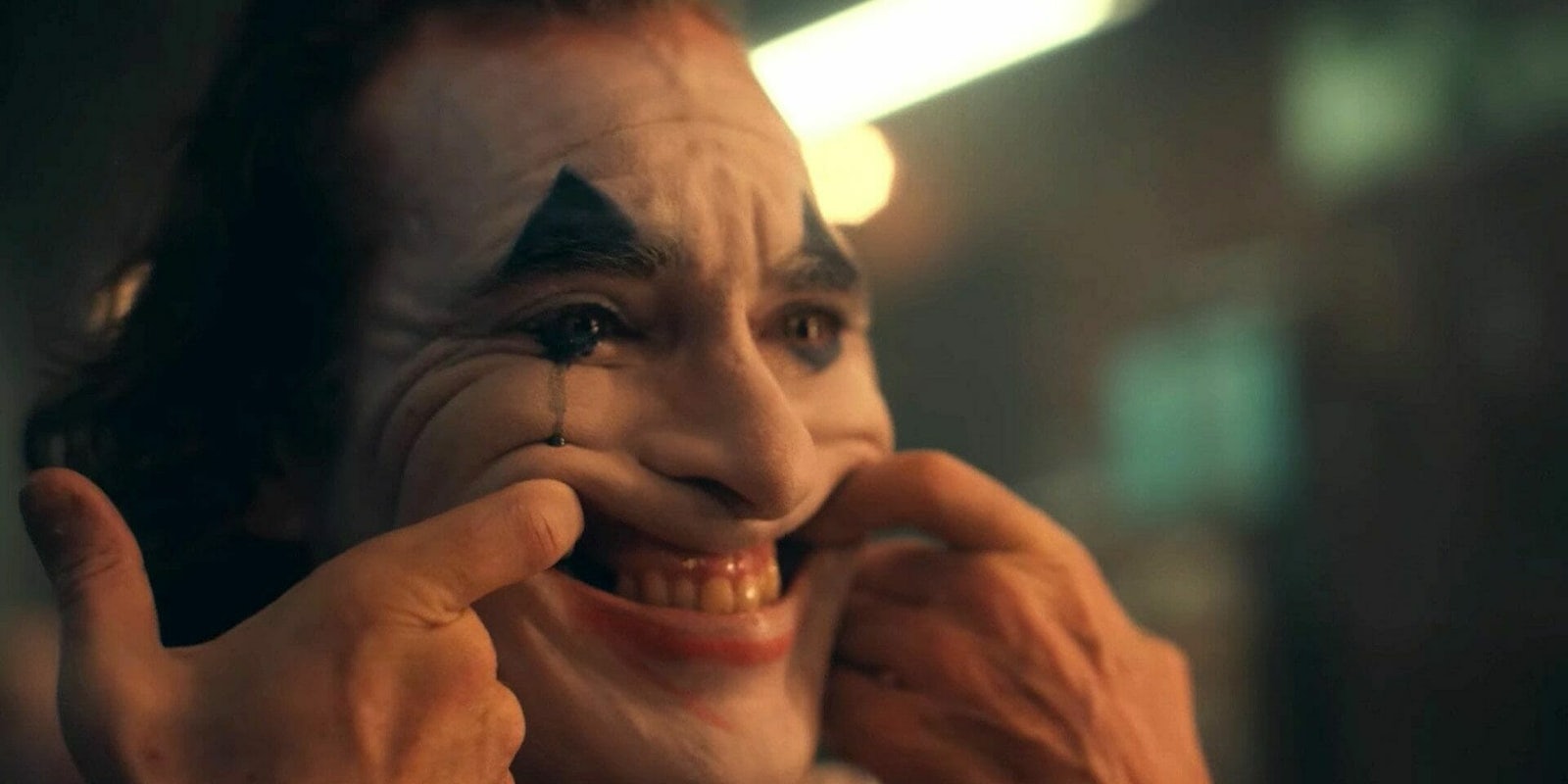Todd Phillips’ Joker is a genius move for the DC movie franchise. Not because it looks good (although surprisingly enough, it does), but because it was engineered to appeal to a specific type of film bro.
For the past decade, certain fans have yearned for Batman to be Taken Seriously, starting with Christopher Nolan’s Dark Knight trilogy and continuing through Zack Snyder’s tenure. This audience’s ideal Batman is a violent loner, and they’re religiously invested in the mythical Snyder Cut of Justice League. Any criticism of Nolan’s sexism or Snyder’s muddled storytelling is instantly rejected as heresy.
There’s a lot of spiritual overlap here with the kind of film buff who cares deeply about IMDb and Rotten Tomatoes ratings (itself a very gendered priority), and places high value on gritty dramas about tormented white men: The Godfather, Fight Club, etc. (If you look at at IMDb’s top-rated movies, you’ll find The Dark Knight in the number 3 spot, nestled comfortably between The Godfather and The Godfather: Part II.) Joker is catnip to this audience; a direct homage to Scorsese’s Taxi Driver and The King of Comedy. It’s the highbrow equivalent of Guardians of the Galaxy, tickling the pleasure sensor of recognizing a familiar pop culture reference.
Joker is DC’s first prestige movie, a mid-budget drama with Joaquin Phoenix echoing his performance in The Master. That’s a big departure from CGI-heavy blockbusters like Aquaman, but it’s also a very predictable continuation for the Batman franchise. Inviting us to sympathize with a white male outcast who descends into violence, it’s practically a checklist of traits that DC film bros Take Seriously. Not an automatically bad idea, but definitely a conservative choice disguised as an original one.
Recent Batman movies are governed by a restrictive brand of masculinity, to the point where Bruce Wayne’s adoptive children have been erased from the franchise. Fatherhood would only distract from Batman’s inner torment; better to excise the softer emotions altogether. The comics and cartoons depict him variously as a detective, a team player, a mentor, and a compassionate protector of Gotham’s underclass. These traits are now virtually invisible to mainstream audiences, overshadowed by Hollywood’s addiction to edginess and macho violence. With Matt Reeves’ upcoming Batman reboot described as a noir thriller, Bruce Wayne and the Joker are locked into an ever-narrowing downward spiral of grittiness and gloom.
To this mindset, it makes perfect sense for the Joker to get the prestige drama treatment. The Joker is dark. The Joker is scary. The Joker is twisted and isolated. It doesn’t matter that the Joker works better as a chaotic monster with indecipherable motives (ie. Heath Ledger’s role in The Dark Knight), because Todd Phillips’ Joker will finally force people to Take Him Seriously again, erasing the awkward memory of Jared Leto saying he’s dark and twisted in a bad movie.
Joker may well turn out to be great, but it still reiterates a tired old idea of which stories qualify as serious, mature and sophisticated. As I put it on Twitter, you don’t see Warner Bros. making a nostalgic Lois Lane movie in the style of Nora Ephron. Better to stay in the comfort zone of gritty dramas exploring the damaged psyches of lonely white men, the most overdone genre in Hollywood.
Want more reviews and interviews from Gavia Baker-Whitelaw? Sign up here to receive her biweekly geek culture newsletter.
READ MORE:


